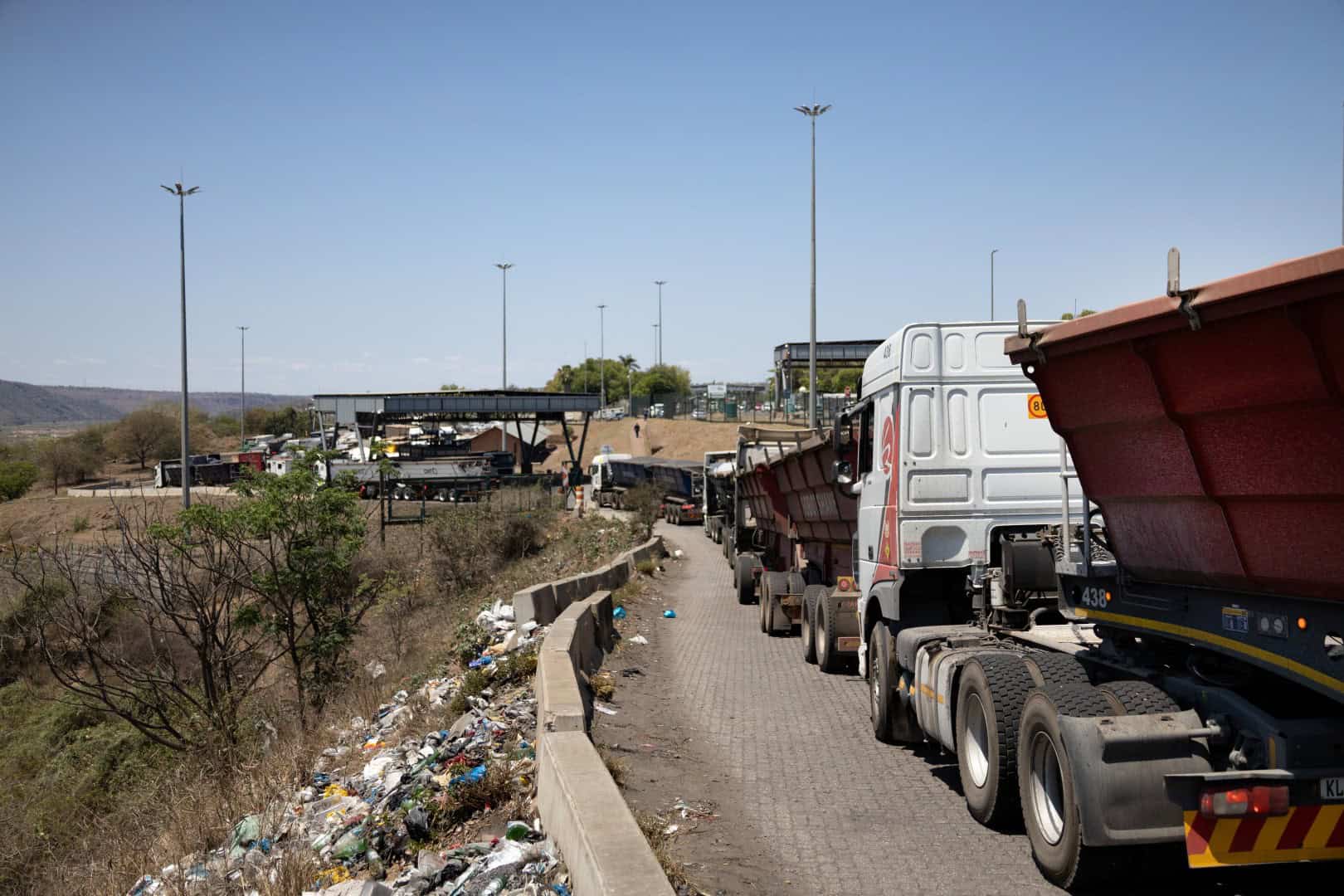Published
2 weeks agoon
By
zaghrah
The recent closure of the Lebombo border post, a key export route from South Africa to Mozambique, is inflicting severe damage on the country’s mining industry. The shutdown, triggered by violent protests in Mozambique following the country’s controversial October 9 elections, has left thousands of trucks carrying vital minerals like coal, chrome, and magnetite stranded at the border.
With Mozambique’s Maputo port—a critical hub for South African chrome exports—also now closed, the repercussions are dire. The port’s operator, Maputo Port Development Co., cited security concerns as the reason for halting cargo reception, and authorities in Mozambique have coordinated the shutdown with customs and border control agencies. As a result, South African exporters are facing escalating losses, with an estimated R1,000 lost per truck for every hour of delay.
For South Africa’s mining sector, the border closure couldn’t have come at a worse time. Already grappling with labour disputes, high operational costs, and regulatory uncertainties, the closure of the Lebombo border is a massive setback. The mining sector, which still supports over 477,000 jobs, is facing further financial pressure due to the disruption of exports that the industry heavily depends on.
The interruption of mineral exports has led to millions of rands in losses each day, with no immediate relief in sight. The situation is worsened by Transnet’s inefficiencies and the strained logistics infrastructure that have already pushed several businesses to consider alternative routes. Barbara Mommen, of the Southern African Association of Freight Forwarders, pointed out that the disruption affects both South African and Mozambican economies, severely hindering essential mineral exports.
The border closure is a direct consequence of violent protests in Mozambique, following a contested election where the ruling party extended its control. Opposition claims of electoral fraud have led to clashes, including the burning of vehicles near the Lebombo border, further escalating tensions. As South African authorities close the border to ensure security, the economic consequences for the mining industry continue to mount.
S&P Global reports that mining companies in South Africa, especially those involved in platinum group metals, coal, and diamond mining, are already facing challenging market conditions. The low commodity prices and stagnant demand have put substantial pressure on companies like Sibanye Stillwater, which has already cut over 11,000 jobs since 2023. Impala Platinum has also warned that further cost-cutting measures may be necessary to avoid restructuring.
The border closure exacerbates the situation, leaving mining companies with even fewer options to remain profitable amidst rising operational costs. Investments in stabilizing failing infrastructure, like Transnet, are draining resources needed for growth and expansion, making it even harder for South Africa to maintain its position in the global mining market.
The Lebombo border closure has highlighted the fragility of South Africa’s mining logistics, underscoring the vulnerability of the supply chain at a time when the sector can least afford additional disruptions. The mining sector, still vital to South Africa’s economy, faces an uncertain future unless urgent solutions are found to mitigate the challenges posed by these logistical bottlenecks.
As South Africa’s mining industry struggles to overcome these challenges, the impact of the Mozambique unrest and border closures continues to reverberate across the sector, costing millions and threatening the future of one of South Africa’s key economic drivers.
By strategically incorporating relevant keywords and providing clear, well-structured content, this article is designed to perform well in search engines while also maintaining strong readability for visitors.













